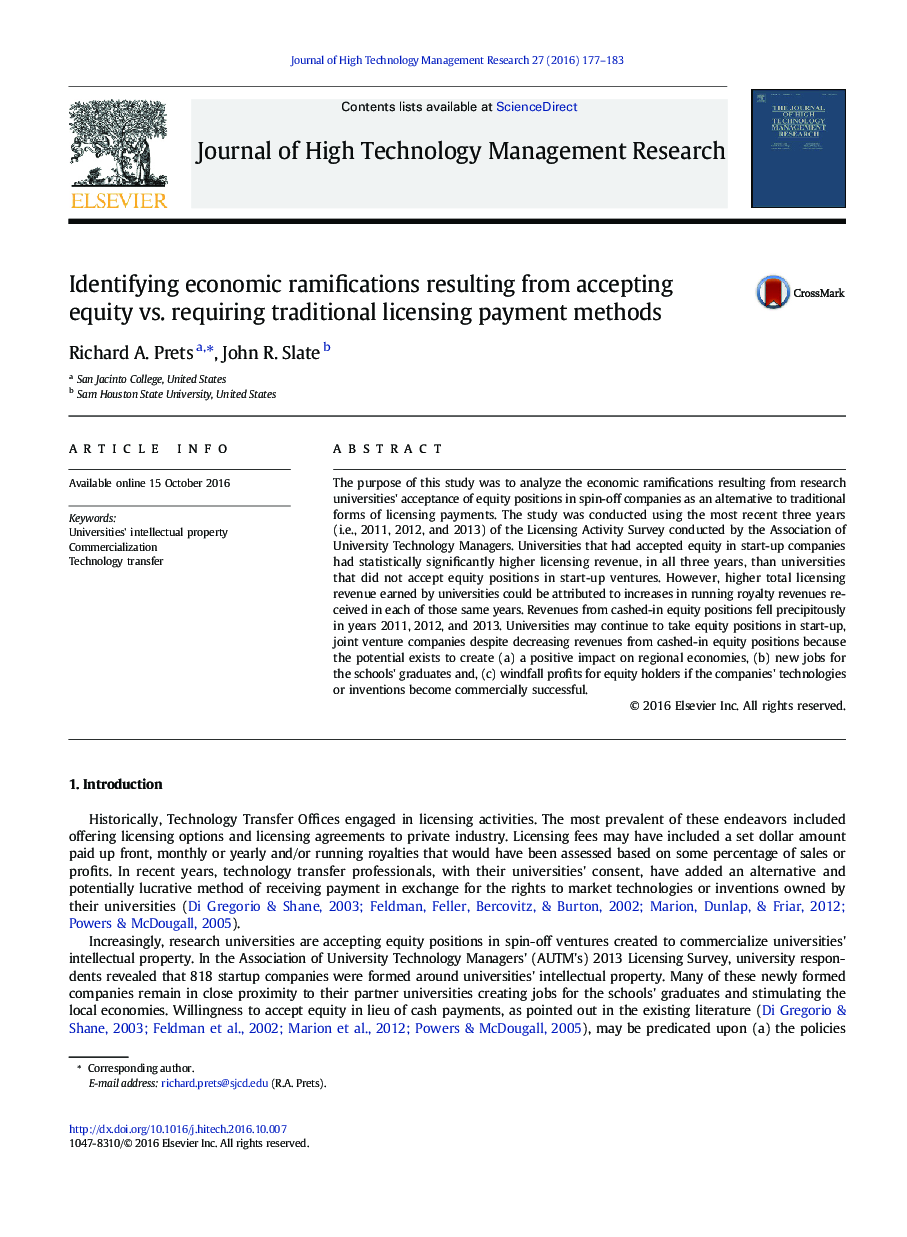| Article ID | Journal | Published Year | Pages | File Type |
|---|---|---|---|---|
| 5110898 | The Journal of High Technology Management Research | 2016 | 7 Pages |
Abstract
The purpose of this study was to analyze the economic ramifications resulting from research universities' acceptance of equity positions in spin-off companies as an alternative to traditional forms of licensing payments. The study was conducted using the most recent three years (i.e., 2011, 2012, and 2013) of the Licensing Activity Survey conducted by the Association of University Technology Managers. Universities that had accepted equity in start-up companies had statistically significantly higher licensing revenue, in all three years, than universities that did not accept equity positions in start-up ventures. However, higher total licensing revenue earned by universities could be attributed to increases in running royalty revenues received in each of those same years. Revenues from cashed-in equity positions fell precipitously in years 2011, 2012, and 2013. Universities may continue to take equity positions in start-up, joint venture companies despite decreasing revenues from cashed-in equity positions because the potential exists to create (a) a positive impact on regional economies, (b) new jobs for the schools' graduates and, (c) windfall profits for equity holders if the companies' technologies or inventions become commercially successful.
Keywords
Related Topics
Social Sciences and Humanities
Business, Management and Accounting
Management of Technology and Innovation
Authors
Richard A. Prets, John R. Slate,
